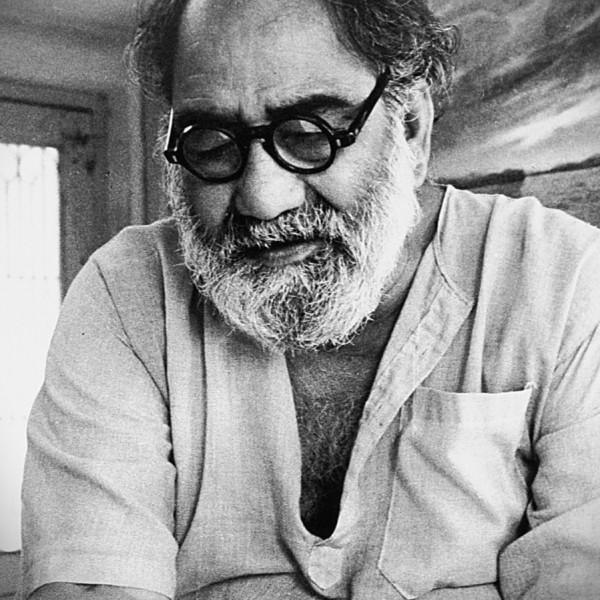Prokash Karmakar
ABOUT
His art emerges from a contemplation of life, through the prism of personal traumatic experiences intermingled with dark moments in our recent history.
Painter | India
Born in 1933
Died in 2014

Prokash Karmakar emerged as one of Kolkata’s most fiercely independent Expressionist painters, known for an oeuvre deeply informed by personal trauma and the political turmoil of his time. Born into an artistic family, his life was marked by upheaval, including the loss of his parents and the destruction of his father’s studio during the communal riots of the 1940s. This turbulent past became the emotional crucible for his art. His paintings—often vivid landscapes, dramatic nudes, and powerful animal studies—reflect what he called the "degenerating society and the confusion that prevails in India today." Karmakar’s style is characterized by its bold, aggressive lines, vibrant, often clashing colors, and a dynamic synthesis of Western expressionism (influenced by Picasso) and traditional Indian linear energy. Crucially, his art philosophy was revolutionary. Rejecting the exclusivity of elite galleries, he famously stated, "I do not want my paintings to be imprisoned within four walls," pioneering street exhibitions in Kolkata to make his work accessible to the common man. His commitment to the raw reality of urban and rural life, coupled with his technical mastery of color and form, solidifies his legacy as a powerful voice that captured the raw, untamed spirit of post-colonial Bengal.
